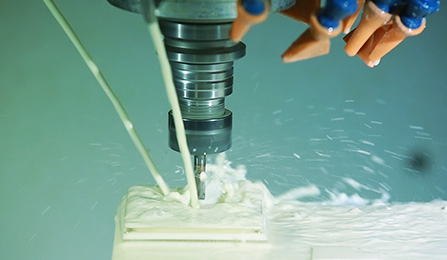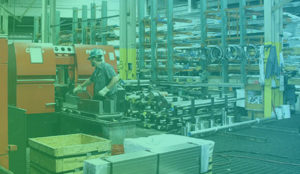The manufacturing process is an arduous journey, especially all the work leading up to it, however, there are 4 types of manufacturing process which we want to highlight to assist your understanding of the overall manufacturing process.
It can feel extremely overwhelming for many startup companies when they eventually succeed in the completion of their product’s journey. But now, entering into the world of manufacturing requires a lot of attention to detail whilst understanding the manufacturing process.
The 4 types of manufacturing we are going to explore are:
Casting and molding
Machining
Joining
Shearing and forming
Combined, these 4 types of manufacturing have been the cornerstone of manufacturing worldwide. They create a long-lasting effect that we see in almost every device/product globally.
Manufacturing type one: Casting and Molding
Casting and molding are usually the most spoken types of manufacturing amongst B2C companies, as it is used for large scale manufacturing. If the products you’re creating starts out as a liquid, chances are the types of manufacturing being used is molding.
One popular type of molding is casting, this involves heating plastic which melts into liquid, then pouring it into a mold (a cavity which emulates the desired shape). Once the plastic has cooled, the mold is removed, giving you the finished shape.
There are four other types of molding for manufacturing:
Injection molding, which melts plastic to create 3-D materials such as phone cases and laptop covers.
Blow molding used to make piping and glass objects
Compression molding, used for large-scale products like tires for the car industry
Rotational molding, used for furniture and shipping drums.
Manufacturing type two: Machining
Producing metal parts during the manufacturing process is difficult without using some type of machine. A manufacturer would use machines to accommodate the strength needed to create these metal parts. Below is an example of SVV’s laser cutting machine.
Discover the allure of burberry shirt replicas, crafted with precision and style. Our 1:1 top design ensures luxury at an affordable price. Perfect for fashion enthusiasts seeking high-quality imitations. Explore our online store for the best fake Burberry shirts archives.
There are many more machines that are designed to accomplish the same results. However, machining is an integral part of the manufacturing process and is an extremely important type of manufacturing.
If you’re looking to produce stronger, durable products, then this type of manufacturing is required. Along with machining comes a heavy burden of infrastructure and operators, so, finding a high-quality, trustworthy provider is also a very important part of the manufacturing process.
Manufacturing type three: Joining
Joining is the manufacturing process of welding and/or the process of binding two materials together, either through, soldering, brazing, and adhesive bonding. The many advantages to this manufacturing process are that joining enables the piecing of two parts together, which cannot be separated easily after.
Manufacturing type four: Shearing and Forming
Shearing is the manufacturing process of cutting a piece of material into two separate pieces. Forming is the manufacturing process whereby, in lamens terms, a piece of material is bent into a specific shape. See below the metal bending machine at SVV’s mechanical engineering facility.
Concluding the 4 types of manufacturing
The 4 types of the manufacturing process can be easily understood to beginners and advanced makers. Whether you’re looking for a manufacturing partner or just interested, eventually when you get your product to the manufacturing lines you’ll be better prepared on what to expect.
Usually, you would not need to worry so much about the details of the manufacturing process, but rather have a good understanding of the way manufacturers operate.





